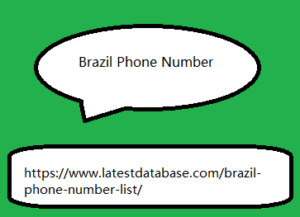Post by afifatabassum on Mar 10, 2024 9:36:29 GMT 1
Admit it, the internet and knowledge sharing tools have been a game changer for most people. Free and user-friendly tools have helped billions of individuals find real-time answers to the numerous questions we ask ourselves every day. The system of algorithms studied by Google and co. to classify information has allowed anyone who searches to obtain exactly what they wanted to find: by clicking on a simple button we have the possibility of selecting exactly what we need , discarding all the preliminary concepts which in books and encyclopedias seem to want to "stretch the soup", making the search for that simple notion a real obstacle course.
But wait a minute: is all this really Brazil Phone Number an advantage? Of course, shared knowledge can only be an advantage , especially for those who, due to the context in which they live, cannot easily access technology and information, but if you think about it, something has changed in the value given to information . Just think of the role of social networks in all this. Very often, even those who demonstrate no basic knowledge of products and disciplines express their thoughts: perhaps just after reading something related to the area in question, they feel informed (and trained) enough to be able to hold a conversation with an expert or with simple students of the discipline who have perhaps been struggling for years to develop adequate training in the sector.

More generally, what is unequivocally noted is the constant flattening of the perceived value towards information. Someone's knowledge is as good as someone else's ignorance. The topic deserves an in-depth study worthy of its gravity (where the position of professors, researchers, scholars and entrepreneurs would also be analyzed more thoroughly), but, having established that this is not the ideal venue, let's stop here with the controversy and instead try to transpose the phenomena discussed in this introduction in the logic of inbound methodology and inbound marketing .
But wait a minute: is all this really Brazil Phone Number an advantage? Of course, shared knowledge can only be an advantage , especially for those who, due to the context in which they live, cannot easily access technology and information, but if you think about it, something has changed in the value given to information . Just think of the role of social networks in all this. Very often, even those who demonstrate no basic knowledge of products and disciplines express their thoughts: perhaps just after reading something related to the area in question, they feel informed (and trained) enough to be able to hold a conversation with an expert or with simple students of the discipline who have perhaps been struggling for years to develop adequate training in the sector.

More generally, what is unequivocally noted is the constant flattening of the perceived value towards information. Someone's knowledge is as good as someone else's ignorance. The topic deserves an in-depth study worthy of its gravity (where the position of professors, researchers, scholars and entrepreneurs would also be analyzed more thoroughly), but, having established that this is not the ideal venue, let's stop here with the controversy and instead try to transpose the phenomena discussed in this introduction in the logic of inbound methodology and inbound marketing .
